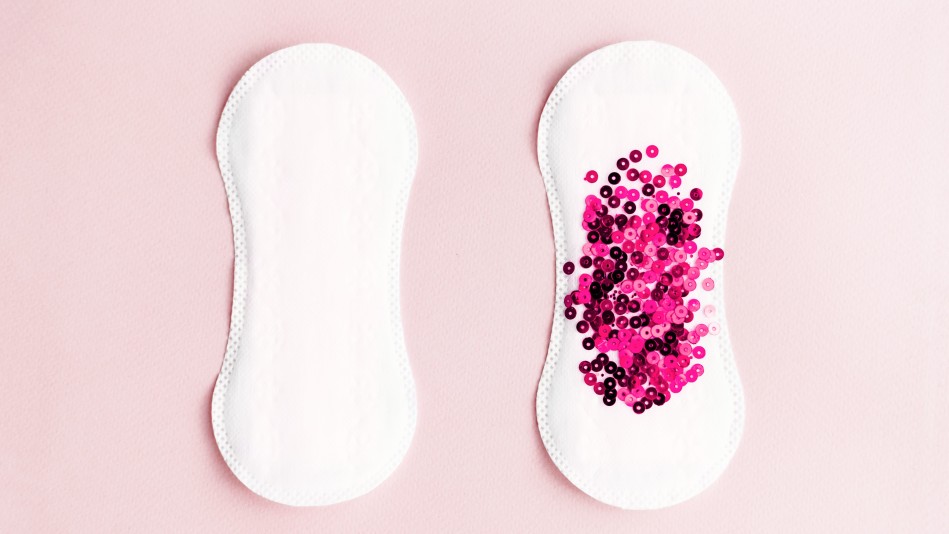6 Groups of Women Most at Risk for Heavy Periods
Plus, what to do if you're dealing with the condition—because you don't have to just go with the flow.

Photo: JULYPROKOPIV/Getty Images
For most women, periods are just a part of life—something to be regularly dealt with, but not that big of a hassle. However, for women with heavy periods (a condition clinically known as menorrhagia) that time of the month can be a lot more disruptive.
The official definition of a "heavy period," is bleeding more than 80 milliliters during a cycle, or just under three ounces, says Christine Greves, MD, an obstetrician-gynecologist at Orlando Health Winnie Palmer Hospital for Women and Babies. "Nobody really knows what that means," says Greves, "so I think of it this way: Do you soak through a pad or tampon every hour? Do you have to wake up in the middle of the night to change your tampon or pad? Do you avoid certain activities because of how heavy your flow is?" The Centers for Disease Control and Prevention (CDC) adds that a woman's period might also be considered "heavy" if it lasts longer than a week, since even if it's not super heavy, the longer you bleed, the closer you get to hitting that 80 milliliter mark.
If you can relate to these symptoms, you're likely in the 10 to 35 percent of American women who experience heavy periods. (Experts attribute that huge range to the fact that many women suffer through heavy periods without ever bringing it up to their doctor.) In addition to being frustrating to deal with, menorrhagia can lead to anemia, a condition marked by a lack of healthy red blood cells, which can leave you feeling weak, tired, and dizzy.
It's helpful to know that some women are at higher risk than others for experiencing menorrhagia. Here are six groups who are likelier to experience a heavy period—and what you can do if you're in one of them.
1. Women with uterine fibroids.
Up to 80 percent of women may get uterine fibroids before the age of 50. These muscular tumors appear in the uterus, and while they're usually harmless, they can trigger a heavy period. Not every woman with a fibroid will experience this—it depends on how big the fibroid is and where it's located. For example, says Dr. Greves, "if a fibroid is located on the inside lining of the uterus, which is the area that sheds blood during the period, it can increase heavy bleeding."
2. Black women.
According to the latest research, about 39 percent of Black women experience heavy bleeding during their cycles—a higher rate than the general population. One possible reason why: Black women also experience a higher rate of fibroids.
3. Women with polycystic ovary syndrome (PCOS).
PCOS is caused by a hormone imbalance, which can affect your period. "Women with PCOS have a higher risk for not bleeding regularly, and when they do have their period, they make up for it with a very heavy flow," says Dr. Greves.
4. Obese women.
The CDC defines obesity as anyone with a body mass index of 30 or higher. About 40 percent of American women fall into that category. What does weight have to do with periods? A lot, actually. "Obesity can produce a hormone imbalance because fat cells can produce estrogen," says Dr. Greves. "This higher level of estrogen results in the lining of the uterus growing thicker, which increases bleeding."
5. Women with copper IUDs.
While a hormonal IUD can actually diminish periods or cause them to stop completely, the copper form, which users tend to like because they're hormone-free, can do the opposite. While doctors aren’t certain why this is, it's possibly because the IUD causes irritation, which raises levels of prostaglandin—a hormone that increases bleeding. In fact, 15 percent of people who get a copper IUD have them removed within a year due to symptoms like heavy periods.
6. Women with other health issues.
Sometimes a heavy period is a side effect of something else going on. Women with bleeding disorders such as von Willebrand disease (a condition that causes issues with blood clotting), thyroid disorders, or those taking blood thinners can all experience a heavier-than-normal period. More serious diseases, such as uterine and cervical cancer, can also cause increased menstrual flow.
What You Can Do:
If heavy periods are negatively impacting your quality of life, you don't have to just deal. There are a range of interventions to address the problem, from medications that can help lessen your flow (e.g., hormone therapy), to surgical options. Think: a procedure to remove fibroids or one that removes a layer of the uterine lining to help curb bleeding. Because choosing the right treatment depends on the cause of your heavy bleeding, talk to your doctor to help you come up with the best plan for you.
View the original story on OprahMag.com: 6 Groups of Women Most at Risk for Heavy Periods.



